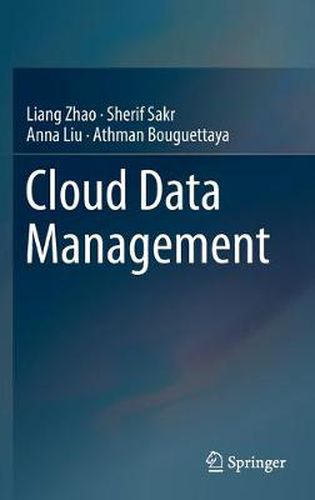Readings Newsletter
Become a Readings Member to make your shopping experience even easier.
Sign in or sign up for free!
You’re not far away from qualifying for FREE standard shipping within Australia
You’ve qualified for FREE standard shipping within Australia
The cart is loading…






This title is printed to order. This book may have been self-published. If so, we cannot guarantee the quality of the content. In the main most books will have gone through the editing process however some may not. We therefore suggest that you be aware of this before ordering this book. If in doubt check either the author or publisher’s details as we are unable to accept any returns unless they are faulty. Please contact us if you have any questions.
In practice, the design and architecture of a cloud varies among cloud providers. We present a generic evaluation framework for the performance, availability and reliability characteristics of various cloud platforms. We describe a generic benchmark architecture for cloud databases, specifically NoSQL database as a service. It measures the performance of replication delay and monetary cost.
Service Level Agreements (SLA) represent the contract which captures the agreed upon guarantees between a service provider and its customers. The specifications of existing service level agreements (SLA) for cloud services are not designed to flexibly handle even relatively straightforward performance and technical requirements of consumer applications. We present a novel approach for SLA-based management of cloud-hosted databases from the consumer perspective and an end-to-end framework for consumer-centric SLA management of cloud-hosted databases. The framework facilitates adaptive and dynamic provisioning of the database tier of the software applications based on application-defined policies for satisfying their own SLA performance requirements, avoiding the cost of any SLA violation and controlling the monetary cost of the allocated computing resources. In this framework, the SLA of the consumer applications are declaratively defined in terms of goals which are subjected to a number of constraints that are specific to the application requirements. The framework continuously monitors the application-defined SLA and automatically triggers the execution of necessary corrective actions (scaling out/in the database tier) when required. The framework is database platform-agnostic, uses virtualization-based database replication mechanisms and requires zero source code changes of the cloud-hosted software applications.
$9.00 standard shipping within Australia
FREE standard shipping within Australia for orders over $100.00
Express & International shipping calculated at checkout
This title is printed to order. This book may have been self-published. If so, we cannot guarantee the quality of the content. In the main most books will have gone through the editing process however some may not. We therefore suggest that you be aware of this before ordering this book. If in doubt check either the author or publisher’s details as we are unable to accept any returns unless they are faulty. Please contact us if you have any questions.
In practice, the design and architecture of a cloud varies among cloud providers. We present a generic evaluation framework for the performance, availability and reliability characteristics of various cloud platforms. We describe a generic benchmark architecture for cloud databases, specifically NoSQL database as a service. It measures the performance of replication delay and monetary cost.
Service Level Agreements (SLA) represent the contract which captures the agreed upon guarantees between a service provider and its customers. The specifications of existing service level agreements (SLA) for cloud services are not designed to flexibly handle even relatively straightforward performance and technical requirements of consumer applications. We present a novel approach for SLA-based management of cloud-hosted databases from the consumer perspective and an end-to-end framework for consumer-centric SLA management of cloud-hosted databases. The framework facilitates adaptive and dynamic provisioning of the database tier of the software applications based on application-defined policies for satisfying their own SLA performance requirements, avoiding the cost of any SLA violation and controlling the monetary cost of the allocated computing resources. In this framework, the SLA of the consumer applications are declaratively defined in terms of goals which are subjected to a number of constraints that are specific to the application requirements. The framework continuously monitors the application-defined SLA and automatically triggers the execution of necessary corrective actions (scaling out/in the database tier) when required. The framework is database platform-agnostic, uses virtualization-based database replication mechanisms and requires zero source code changes of the cloud-hosted software applications.